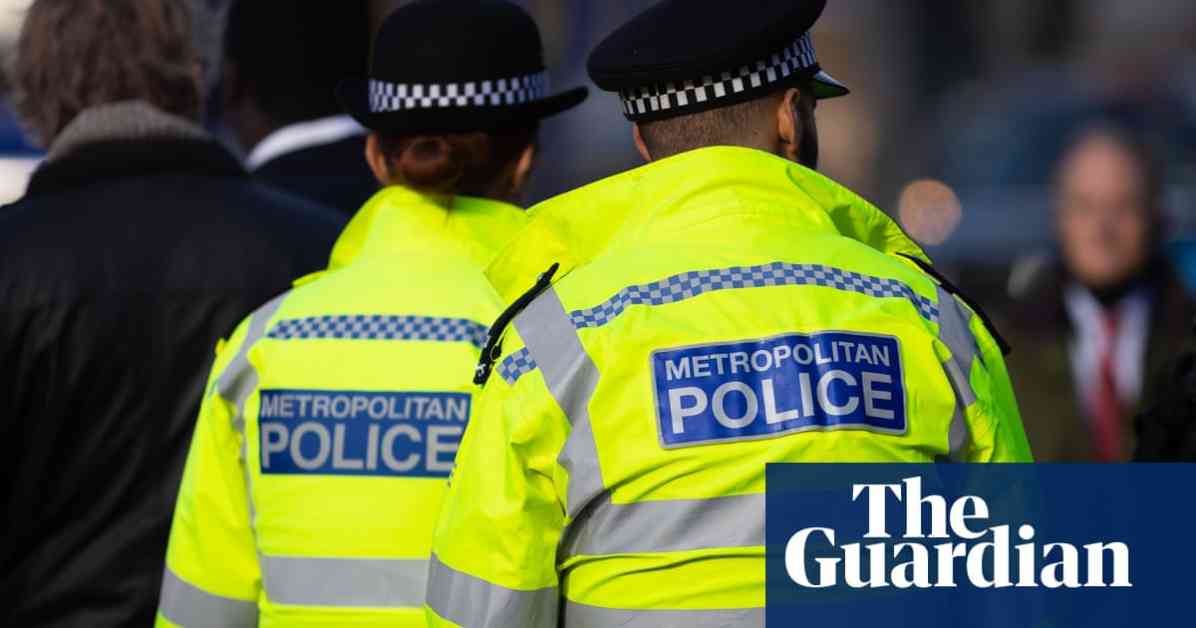The Metropolitan Police Service, the UK’s largest police force, has come under scrutiny following an official inspection that revealed failures in crime-fighting efforts. The report, conducted by His Majesty’s Inspectorate of Constabulary and Fire & Rescue Services (HMICFRS), highlighted serious concerns about the force’s management of dangerous offenders and inadequate performance in key crime-fighting areas.
Subpar Performance in Crime-Fighting Efforts
The findings of the inspection painted a grim picture of the Met’s effectiveness in combatting crime. In seven out of eight key areas, the force was providing an inadequate or failing service, raising alarms about its ability to ensure public safety. Of particular concern was the management of dangerous offenders, with instances where high-risk registered sex offenders went unchecked for years despite multiple attempts to visit them.
The report also revealed troubling practices within the force, such as forewarning sex offenders of impending visits instead of conducting unannounced spot checks. This lack of proactive measures in managing offenders and suspects was deemed inadequate by the inspectorate, pointing to systemic issues that need urgent attention.
Inadequacies in Crime Investigations
One of the most glaring deficiencies highlighted in the report was the Met’s handling of crime investigations. Inspectors found that crimes such as indecent images of children, extra-familial child abuse, and sexual offenses were being investigated by new recruits, indicating a lack of experience and expertise in handling sensitive cases.
Moreover, the quality of investigations for neighborhood crimes was deemed poor, with lines of inquiry not always being pursued effectively. This resulted in a lower likelihood of catching criminals for regular offenses like theft, assaults, and vehicle crime compared to other police forces. The report also noted that the Met fell short in providing a satisfactory level of service to victims in a significant number of cases examined.
Challenges in Managing Offenders and Suspects
The inspection report raised red flags about the Met’s ability to manage offenders and suspects effectively. In one concerning case, a high-risk registered sex offender went unvisited for six years despite multiple unsuccessful attempts, highlighting a lack of proactive measures to address potential risks to the community.
The inspectorate noted a general inadequacy in the Met’s approach to managing offenders, with insufficient consideration given to arresting individuals or issuing warrants when necessary. This failure to take decisive action in dealing with dangerous individuals posed a significant threat to public safety and underscored the need for urgent reforms within the force.
Efforts to Address Failures and Improve Performance
In response to the damning inspection report, the Met acknowledged the need for improvement and committed to a plan to address the shortcomings identified by HMICFRS. The force emphasized its ongoing efforts to implement reforms under the “A New Met for London” initiative, aimed at enhancing policing practices and ensuring better outcomes for victims of crime.
Despite the challenges highlighted in the report, lead inspector Lee Freeman commended the Met for certain areas of progress, such as improved response times to public calls. However, he reiterated serious concerns about the force’s approach to investigating crime and managing offenders, emphasizing the need for consistent improvements across all aspects of policing.
Government’s Response to the Inspection Findings
The inspection report has prompted a swift response from the government, with Home Secretary Yvette Cooper vowing to take a more hands-on approach in driving improvements in policing. A Home Office spokesperson highlighted the need for urgent action to address the performance issues identified in the Met transformation program, emphasizing the importance of upholding high standards in law enforcement to strengthen public confidence.
The report’s findings have also raised concerns about the Met’s funding and recruitment challenges, with a projected budget shortfall of £400 million looming over the force. Failure to recruit more officers and provide adequate support for new recruits has been cited as a critical issue that needs to be addressed to ensure the effective functioning of the force.
Looking Ahead: Reforms and Challenges
As the Met grapples with the fallout from the inspection report, there is a growing recognition of the need for comprehensive reforms to address the systemic issues plaguing the force. While Commissioner Sir Mark Rowley’s reform plan has been lauded as a step in the right direction, there is a consensus that more work needs to be done to effect meaningful change within the force.
Despite the challenges and criticisms leveled against the Met, there is a sense of determination to overcome the shortcomings highlighted in the inspection report. With ongoing efforts to improve performance, address deficiencies in crime-fighting efforts, and enhance public safety, the force is poised to undergo a period of transformation aimed at restoring public trust and confidence in law enforcement.
In Conclusion
The Metropolitan Police Service’s shortcomings in crime-fighting efforts and offender management have been laid bare by the recent inspection report, prompting calls for urgent reforms and improvements within the force. While the findings paint a troubling picture of systemic failures and inadequacies, there is a collective commitment to address these issues and ensure the safety and security of the public. As the Met navigates the challenges ahead, the focus remains on implementing meaningful reforms, enhancing policing practices, and upholding the highest standards of law enforcement to safeguard communities across London.












